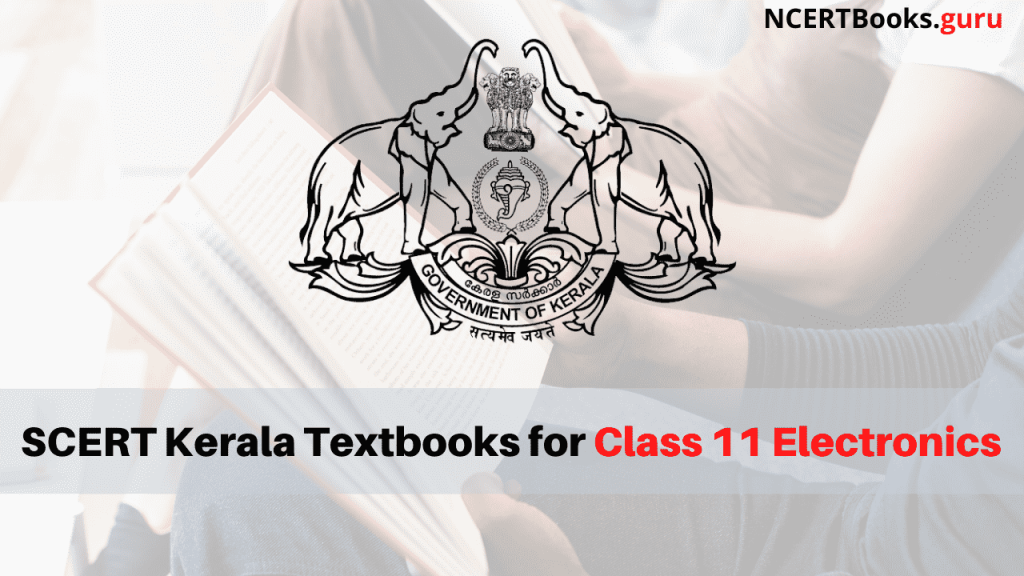Mastering Electronics In 11th Standard: Unleash Your Potential And Click To Action Now!
Electronics 11th Standard: A Comprehensive Guide for Students
Introduction
Welcome, readers! In today’s digital era, electronics has become an integral part of our lives. From smartphones to smart homes, electronics has revolutionized the way we live and communicate. For students pursuing the 11th standard, it is essential to have a solid understanding of electronics, as it forms the foundation for higher studies and future careers in engineering or technology. In this article, we will explore the world of electronics in the 11th standard, covering its various aspects, applications, and importance.
What is Electronics 11th Standard?
🔍 Electronics 11th standard refers to the study of electronic components, circuits, and systems at the secondary education level. It is a crucial subject for students interested in pursuing further studies in electrical engineering or related fields. The curriculum typically covers topics such as electronic devices, digital electronics, analog electronics, and communication systems.
2 Picture Gallery: Mastering Electronics In 11th Standard: Unleash Your Potential And Click To Action Now!


Electronic Devices
Electronic devices constitute the building blocks of modern technology. This section focuses on understanding the principles, characteristics, and applications of various electronic devices such as diodes, transistors, and integrated circuits. Students learn about their working principles, electronic symbols, and how to analyze and design basic circuits using these devices.
Digital Electronics
Digital electronics deals with the representation, manipulation, and processing of information in the form of digital signals. It covers topics such as Boolean algebra, logic gates, combinational and sequential circuits, and memory devices. Students learn how to design and analyze digital circuits using logic gates and flip-flops, as well as understand the operation of binary arithmetic and digital codes.
Analog Electronics
Analog electronics focuses on the study of continuous signals and their behavior in electronic circuits. It covers topics such as amplifiers, oscillators, filters, and feedback systems. Students learn about the characteristics of various electronic components in analog circuits, as well as the design and analysis of amplifier circuits using different amplifier configurations.
Communication Systems

Image Source: scribdassets.com
Communication systems involve the transmission and reception of information over long distances. This section introduces students to the fundamentals of analog and digital communication systems, including modulation techniques, multiplexing, and demodulation. Students gain knowledge about different communication channels, noise effects, and how to analyze and design basic communication systems.
Who Should Study Electronics 11th Standard?
🔍 Electronics 11th standard is suitable for students who have a keen interest in understanding the functioning and applications of electronic devices and circuits. It is an ideal choice for those aspiring to pursue a career in electrical engineering, electronics, telecommunications, or any technology-related field. Students who enjoy problem-solving, logical reasoning, and working with mathematical concepts will find this subject intriguing and rewarding.
Pre-Requisites
Prior knowledge of basic physics and mathematics concepts is essential for studying electronics in the 11th standard. Students should have a good understanding of topics such as electric circuits, electromagnetic induction, and trigonometry. Proficiency in algebra and calculus will also be beneficial in comprehending the complex concepts in electronics.
When to Study Electronics 11th Standard?
🔍 Electronics 11th standard is typically offered as part of the science stream curriculum in secondary education. The ideal time to study electronics is during the 11th standard, as it provides a strong foundation for advanced studies in electronics and related fields. Students usually choose their subjects for the 11th standard based on their career aspirations and interests, and electronics can be a valuable choice for those inclined towards engineering or technology.
Where Can Electronics 11th Standard Lead You?
🔍 Electronics 11th standard serves as a stepping stone towards a variety of rewarding career paths. By studying electronics, students develop crucial skills in problem-solving, critical thinking, and logical reasoning. This lays a solid foundation for pursuing higher studies in electrical engineering, electronics engineering, telecommunications, computer science, or any other technology-related field. Graduates in these fields find employment opportunities in industries such as telecommunications, electronics manufacturing, power systems, embedded systems, and research and development.
Why Study Electronics 11th Standard?

Image Source: ncertbooks.guru
🔍 Electronics 11th standard offers numerous benefits for students interested in technology and engineering. Here are some compelling reasons to study electronics:
1. Practical Applications
Electronics is everywhere around us. By studying electronics, students gain a deep understanding of the practical applications of electronic devices and circuits, enabling them to contribute to technological advancements and innovation.
2. Career Opportunities
With the rapid growth of the technology industry, there is a high demand for skilled professionals in the field of electronics. Studying electronics opens up a wide range of career opportunities in various sectors, providing job security and growth potential.
3. Problem-Solving Skills
Electronics requires a systematic and analytical approach to problem-solving. By studying electronics, students develop critical thinking skills, logical reasoning, and the ability to troubleshoot and repair electronic systems, which are valuable skills in any profession.
4. Foundation for Higher Studies
Electronics in the 11th standard lays a strong foundation for higher studies in electrical engineering, electronics engineering, or related fields. It provides the necessary knowledge and skills required to excel in these disciplines and pursue advanced research or specialized studies.
5. Personal Development
Studying electronics not only enhances technical knowledge but also fosters personal development. It improves problem-solving abilities, cultivates creativity, and instills discipline and perseverance, preparing students for success in various aspects of life.
How to Study Electronics 11th Standard?
🔍 To excel in electronics in the 11th standard, students should adopt effective study techniques and strategies. Here are some tips to enhance your learning experience:
1. Understand the Basics
Start by thoroughly understanding the fundamental concepts and principles of electronics. Build a strong foundation by grasping the core concepts and their applications.
2. Practice Regularly
Consistent practice is key to mastering electronics. Solve numerical problems, work on circuit simulations, and experiment with hands-on projects to reinforce your understanding.
3. Seek Clarification
If you encounter doubts or have difficulty understanding certain topics, don’t hesitate to seek clarification from your teachers or peers. Engage in discussions and participate in group study sessions to gain different perspectives.
4. Stay Updated
Electronics is a dynamic field with regular advancements and innovations. Stay updated with the latest developments, industry trends, and emerging technologies to broaden your knowledge and gain a competitive edge.
5. Explore Practical Applications
Go beyond the textbooks and explore real-world applications of electronics. Research about innovative projects, attend workshops, and engage in hands-on experiences to connect theory with practice.
FAQs (Frequently Asked Questions)
1. Is electronics in the 11th standard a challenging subject?
Yes, electronics in the 11th standard can be challenging due to its complex concepts and mathematical calculations. However, with dedication, regular practice, and a strong foundation in physics and mathematics, students can overcome the difficulties and excel in the subject.
2. What are the career prospects after studying electronics in the 11th standard?
After studying electronics in the 11th standard, students can pursue higher education in electrical engineering, electronics engineering, telecommunications, computer science, or related fields. This opens up various career opportunities in industries such as telecommunications, electronics manufacturing, power systems, embedded systems, and research and development.
3. Can I self-study electronics in the 11th standard?
While self-studying electronics in the 11th standard is possible, it is recommended to seek guidance from experienced teachers or enroll in coaching institutes to ensure a solid understanding of the subject. Teachers can provide valuable insights, clarify doubts, and guide students in the right direction.
4. Are there any prerequisites for studying electronics in the 11th standard?
Prior knowledge of basic physics and mathematics concepts is essential for studying electronics in the 11th standard. Students should have a good understanding of topics such as electric circuits, electromagnetic induction, and trigonometry.
5. How can electronics in the 11th standard benefit me in everyday life?
Studying electronics in the 11th standard enhances your understanding of electronic devices and systems, which are integral parts of everyday life. It enables you to troubleshoot common electronic issues, make informed decisions while purchasing electronic gadgets, and stay updated with the latest technological advancements.
Conclusion
In conclusion, electronics in the 11th standard provides students with a solid foundation in understanding electronic devices, circuits, and systems. It offers numerous career opportunities, enhances problem-solving skills, and lays the groundwork for higher studies in electrical engineering and related fields. By studying electronics, students develop a deep appreciation for technology and its applications, preparing them for success in the digital world. So, seize this opportunity to explore the fascinating world of electronics and unlock your full potential!
Final Remarks
🔒 The information provided in this article is intended to serve as a comprehensive guide for students studying electronics in the 11th standard. While every effort has been made to ensure the accuracy and reliability of the information, it is advisable to refer to official textbooks, consult teachers, or seek professional guidance for specific academic requirements. The author and publisher disclaim any liability for any loss or damage caused directly or indirectly by the use of the information provided.
This post topic: Electronics


